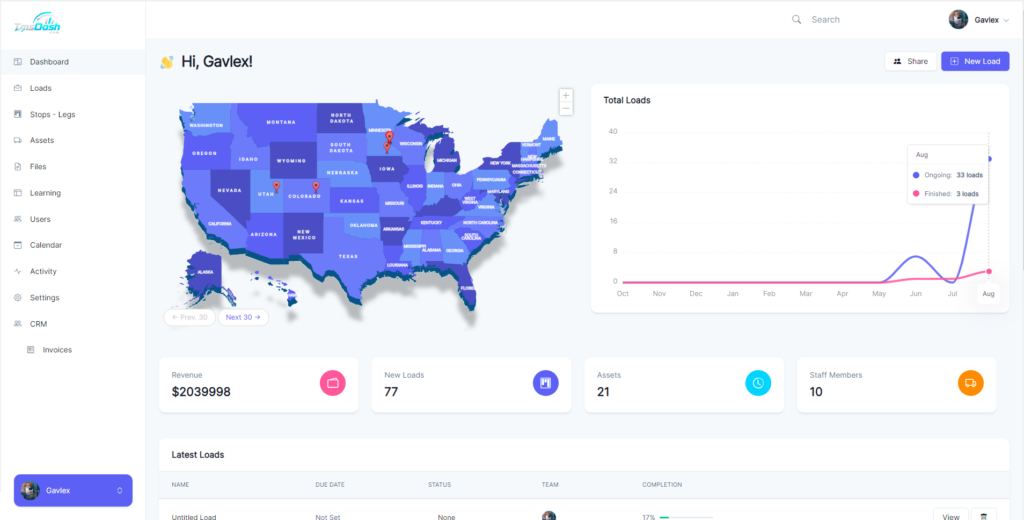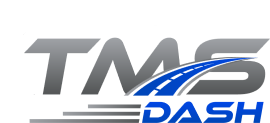Transportation Management System is a Key Tool for your business:
Why Transportation Management System is a Key Tool in your Business

Most businesses are rethinking their service delivery process and want to implement a streamlined, cost-effective, and efficient system. The transportation and delivery of goods is one sector that needs radical changes and with modern technology, it is possible to adopt a transportation management system (TMS).
What is a Transportation Management System?
A TMS is an integrated and modern logistics platform that incorporates technology to assist your business in planning, executing, and optimizing the movement of the business’s goods. The system ensures that the shipment process is streamlined and adheres to all the stipulated rules. The primary goal of TMS is to provide comprehensive information on goods in transit and ensure timely delivery.
Your business can use TMS to compare prices offered by various carriers, book a shipment, and track the movement of goods. Ultimately you will be able to create efficiency in the shipping process, minimize costs, and ensure client satisfaction. If you want to enhance last minute delivery TMS system can help you.
What are the Key Features of a TMS?
Real-time Tracking of Data
The TMS allows you to track the shipment process of your goods. You will have freight visibility as your goods are transported from point A to B. Since you have a view of the entire transportation process, it is easier to manage the shipment process. An ideal system should be accurate and offer real-time notifications about the progress of the good. It should also offer alerts in case of delays or any other issues.
Freight Management
Freight management involves efficiently moving goods from one point to another by incorporating various transportation models, technologies, and intermediaries. TMS helps to ensure freight management is seamless. The system can help in cost estimations, order management, freight billing, and rate estimations.
Measurement
The TMS platform provides comprehensive reports on key performance indicators (KPIs). Primarily, a well-integrated system will help to measure some key metrics such as:
- Freight costs: It is possible to estimate the cost of each unit shipped. It is a critical measure to estimate the overall costs to your organization.
- Transportation time: through the TMS, you can compare the expected shipping time versus the delivery time for all your shipments. Thus your business can be able to determine the value of the system and make any necessary changes.
Order Management
In a well-integrated TMS, the order information is available to all stakeholders, such as customers, drivers, or planners. All parties can access all updates in the transit of the goods. Since your customers can receive comprehensive real-time data about their freight, it increases trust and efficiency.
Route Checking
A TMS ensures that you are intentional when transporting your goods. Selecting an ideal carrier, route, and shipment process is possible with the integrated system. With the technology, you can review all carrier routes available within a radius of the given location.
What are the Top Advantages of a TMS?
Saves Costs
A TMS system ensures cost savings for both the business and customers. The software makes it possible to find a carrier that offers the best rates and routes, significantly saving your costs. It also helps automate the booking process, replacing costly and time-consuming manual processes. The software ensures efficiency in the shipping process.
Ultimately, the integrated platform also helps to minimize shipping costs. Your business can identify cost-effective routes that cannot be identified via a manual process. Moreover, load optimization is possible, which also helps trim costs.
Improved Customer Service
In today’s competitive market, fast and last-minute delivery is crucial. You need to integrate a system that ensures you cater to the unique needs of your customers. TMS is an integrated system that allows customization of orders and ensures timely and last-minute delivery. It is possible to consolidate orders and select a cost-effective carrier.
Track all deliveries
With the TMS, tracking all your shipments in real time is possible. Your business will receive notifications when there is a problem with your orders. You will benefit from knowing where there is a hurdle in the shipment process and being able to make prompt adjustments. Tracking the shipment time is important to strategize and develop optimized route schedules.
Ensure Efficiency in the Warehouse
An efficient warehouse should be well organized to ensure the logistics process is streamlined. TSM helps to create a clear record of all orders and identify where they are situated in the warehouse. It is also possible to track goods in transit and after they arrive in the warehouse. Thus it is possible to review all processes in the warehouse and ensure efficiency.
Visibility of the Supply Chain
The TSM allows seamless integration in the supply chain. Since you have great visibility in the system, you can access accurate data of all systems. Thus you can act promptly and resolve all issues as they arise. You will be able to handle customers’ needs efficiently without compromising on the quality of services.
Better Order Fulfillment
With a great TSM system, the shipping process is quite accurate. All stakeholders can track important metrics of the goods, such as the weight and nature of the products. Through the software, it is possible to avoid some common shipping errors. It is possible to resolve any unpredictable error in the shipping process.
Top Factors to Consider when Choosing an Ideal TMS
Current and Future Needs
When choosing a TMS system for your business, it is crucial to analyze your business’s current and future needs. You need a system that can seamlessly integrate with your existing supply chain processes. You also need a customizable system that can accommodate extra functionalities in your business.
Factor in the current freight volume of your business and future freight volume. Select a flexible system that allows you to expand the functionality of the TMS without having to restructure or incur additional costs.
Technology and Design
Understanding how the TMS system works and whether it will be an ideal feature for your business is imperative. The technology and design should enable integration with your existing systems and allow easy accommodation of carriers and other partners. It should also be flexible enough to cater to customer needs. All stakeholders should easily access information from the TMS conveniently and in real time.
It should have a design adaptable to your business needs and enables you to configure the system. Self-configuration ensures you have total control of your system, and you don’t need to incur hefty costs in the future.
Cost
When choosing an ideal TMS system, it is important to consider the costs. Look out for vendors who have hidden charges in their deals. The costs of the system should be as transparent as possible and offer value to the business.
The most recommended software should be subscription based and has an ideal pricing structure tailored to meet your business needs. A subscription-based model is beneficial as it ensures that you are using an updated version of the platform. Also, the model is based on your freight volume while giving you access to the best technology.
You should also select a TMS model with unlimited users at no extra fee. Unlimited users ensure you can accommodate the spiking needs of your business without incurring additional costs.
Credibility
You can also ask the vendors for verifiable case studies or other references from other users. A good supplier should have verifiable examples of how the system can meet customers’ specific needs. They should provide robust evidence on how the platform’s integration will help haul goods.
Consider your Customers
Select a TMS that enables accurate and timely communication with your customers. Ensure you adopt a secure and virtual portal where all your clients can monitor the progress of their goods in real-time. Keeping your customers updated in the freight management system creates trust and enhances efficiency in the entire process.
DOT Compliance
DOT compliance is quite integral and ensures that you meet the stipulated needs of the U.S. Department of Transportation. If your business violates the DOT rules, it can suffer hefty fines and repercussions. Your business must fulfill the driver’s qualifications and comply with the inspection and maintenance standards.
It is paramount to eliminate costly errors in driver logs, maintenance, or records. The integrated tools you incorporate for the system should be strictly DOT compliance while enhancing efficiency in the transportation of goods.
Security
When integrating the TMS software, you should consider the security and privacy of your company’s and customer’s data. Select a system that does not compromise the integrity of your data. The vendor should be prohibited from selling or sharing your data with any third party.
Final Thoughts
A TMS system is a necessary tool in your business. The system integration allows all stakeholders to track freight and raise alarms in case of any issues. You can get any warning in case of delays or other issues in the shipping process. The automated system helps your business to save money from manual and repetitive paperwork and helps speed up goods transit, minimize costs, and increase customer satisfaction. Be proactive and leverage your business with an efficient and cost-effective TMS system.
Reporting by TMS DASH; Writing by Mikeila; Editing by Gavlex

Responses